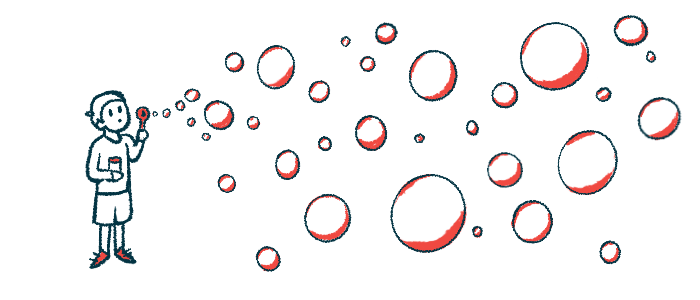High insulin linked to weight gain, excessive eating in PWS children
High leptin levels also seen with higher insulin
Written by |

Too much insulin — a hormone that controls sugar in blood — may set off weight gain and excessive eating (known as hyperphagia) in children with Prader-Willi syndrome (PWS), a study suggests.
High levels of insulin occurred hand in hand with high levels of leptin, a hormone that controls appetite and fat storage.
“Regulating insulin levels early in childhood before the onset of the early weight gain may be key in modulating the onset and severity of obesity and hyperphagia,” the researchers wrote in the study, “Hyperinsulinemia is a probable trigger for weight gain and hyperphagia in individuals with Prader-Willi syndrome,” which was published in Obesity Science and Practice.
Many children with PWS have learning difficulties and developmental delays that occur with behavioral challenges and lack of muscle tone.
Starting before birth and continuing through childhood, they will go through nutritional phases that range from poor feeding and slow growth (failure to thrive) to hyperphagia.
In nutritional phase 0, they move less inside their mother’s womb and are born with lower weight than their siblings. While they often fail to thrive in the first months of life (phase 1a), their appetite will improve and they will begin to grow appropriately up until age 2 (phase 1b).
Between the ages of 2 and 8, they will begin rapidly gaining weight (phase 2a) and develop an increased interest in food (phase 2b). From age 8 onward, they will be constantly hungry and eat an excessive amount of food if allowed (phase 3).
Hyperphagia is often linked to excessive fat accumulation (obesity) and presents a risk to health. What causes rapid weight gain before there is an excessive intake of calories from food is unclear.
Insulin is a hormone made by the pancreas that controls the amount of sugar in the blood by helping it move into cells, where it can be used for energy.
Does high insulin provoke weight gain, insatiable hunger?
To find out if too much insulin sets off weight gain and hyperphagia, the researchers measured insulin levels in blood plasma after an overnight fast in 40 children with PWS, ages 5 weeks to 12 years. They included 39 age-matched children with early-onset severe obesity and 52 healthy-weight siblings as controls.
In the children with PWS, mean levels of plasma insulin about doubled as they went from phase 1b to phase 2a (2.8 to 5.9 microinternational units, or mcIU) and then from phase 2b to phase 3 (6.9 to 13.2 mcIU).
In phases 1a and 1b, these levels were similar to children with obesity and healthy-weight siblings of about the same age. But in phases 2a through 3, they were lower than in children with obesity and significantly higher than in healthy-weight siblings.
These changes didn’t coincide with significant differences in the glucose levels in plasma after fasting. Generally, there also was no insulin resistance in the PWS group, which is when cells stop responding as well to insulin and become unable to easily take up glucose from blood, except in phase 3.
Leptin levels increase through nutritional phases
The transition from phase 2a to phase 2b was linked to an almost fourfold increase in the levels of leptin.
As they reached phase 2b, children with PWS had significantly higher mean levels of leptin than the healthy-weight siblings (2,471 vs. 379 picograms per milliliter, or pg/mL), which remained true through phase 3 (1,958 vs. 379 pg/mL). These levels were about the same as those of children with early-onset severe obesity, however.
The same transition, from phase 2a to phase 2b, also went along with an increase in the body mass index (BMI), a measure of body fat that’s calculated based on a person’s weight and height.
The PWS children’s BMI z-score, a measure of BMI relative to a standard growth chart, went from 0.45 to 1.91. Weight gain in phase 2b, but not phase 2a, was accompanied by a significant increase in the total amount of body fat.
“This study reports the presence of hyperinsulinemia in individuals with PWS. The data suggest elevated insulin signaling (hyperinsulinemia) promotes weight gain and an increase in fat mass with a concomitant increase in circulating leptin levels inducing central insulin and leptin resistance, subsequently leading to obesity, hyperphagia and lack of satiety,” the researchers wrote. “Unraveling all the factors involved in all the various nutritional phases in PWS will yield valuable insights into future treatments.”
These may include medications to lower the levels of insulin or diet restrictions, they said.






